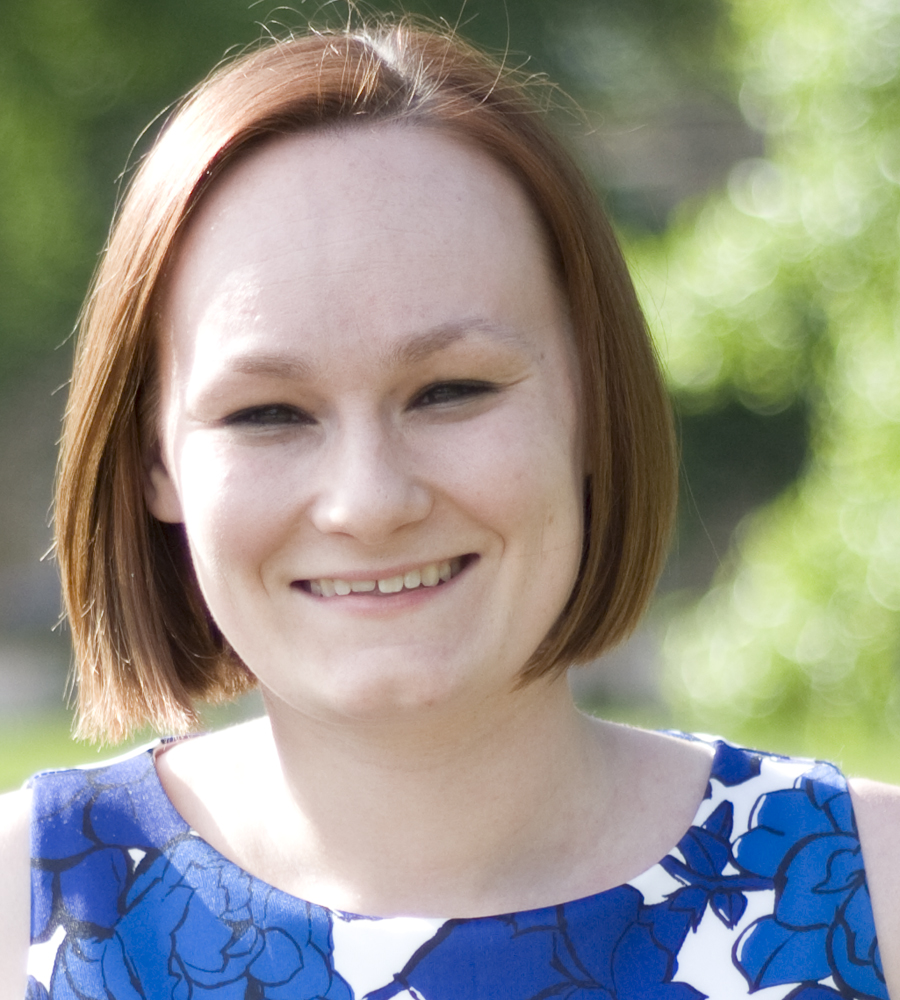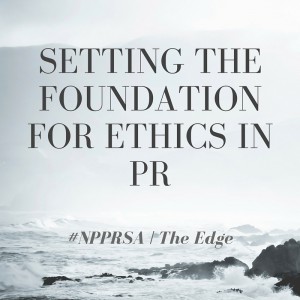As a PR professional tethered at all times to some sort of device, it’s easy to let work take over your whole life. But our passion projects are a huge part of what make us unique communicators, bringing a diverse range of experience to our daily work.
Raise your hand if you’ve seen the movie Pitch Perfect. Keep it raised if you recognize these two crazies from the movie:
Well, that’s me, to a certain extent. If you didn’t know, the movie Pitch Perfect is actually based loosely on a book written about the International Championship of Collegiate A Cappella, or the “ICCA” for short. This tournament has been happening for 20 years, and I’m one of the people that helps make it happen. More specifically, I coordinate the high school level of the tournament—the International Championship of High School A Cappella (ICHSA).
I’ve been working with Varsity Vocals—the organization that runs both tournaments—for more than 10 years. When I was in college, I sang with an a cappella group that competed in the tournament. I wanted to stay connected to music in some small way, so I asked the organizers of the tournament how I could help. At the time, the high school level of the tournament was very small—holding only a few shows each year. I joined to help grow the tournament.
Over the last several years, in large part thanks to the commercial success of Pitch Perfect, The Sing-Off and Pentatonix, the tournament has grown exponentially. More than 150 high school groups competed in the ICHSA this year, at 17 quarterfinal and semifinal events around the country. Even though it’s not my day job, I still manage the tournament and a team of regional producers who run each event. It never feels like an extra burden though, because it’s something I love.
On that note, here are a few tips for keeping your professional and personal life in tune with each other:
Learn how to say no to things that don’t make you happy or bring you some sort of personal fulfillment. Your spare time is precious, and it’s easy to get pulled into a million extracurricular things, from serving on boards, to attending networking events that seem to be happening every night. It’s absolutely beneficial to do some of those things, but you also have to commit to carving out time for the things that you truly love.
Marry your passion projects with your professional skills. Did you play soccer in high school and miss the game? Volunteer for a local children’s soccer league as a coach, or see if your area has a semi-professional league that you can help run social media or offer your PR services pro-bono. Working with Varsity Vocals started off as a way for me to stay connected to the a cappella world, but it’s also taught me about event planning, people management, public speaking and public relations.
Last, and most important:
Share what you love in your professional life. Not only does it make you more human, it might help you connect with your coworkers and clients on a more personal level. I brought in my old college a cappella group to sing at a company function last year and found the head of a local association sings in a semi-professional a cappella group! A couple coworkers have also come to shows to support me—one even flew to New York City for the Finals!
And, for those of you on the east coast, tickets are still available for ICHSA Finals at the Town Hall in New York City on Friday, April 29. It’ll be an aca-awesome show, I promise!
Andie Poole is a member of the Central Michigan PRSA chapter and a senior account executive at Martin Waymire, a Lansing, Michigan-based public relations and marketing firm. She’s also the director of high school programming for Varsity Vocals. Andie and her husband Andrew live in East Lansing with their human child, daughter Elliot (1) and dog child, Einstein (5) and love cheering on the Michigan State Spartans with a good craft beer in hand. Follow her on Twitter at @andiepoole.

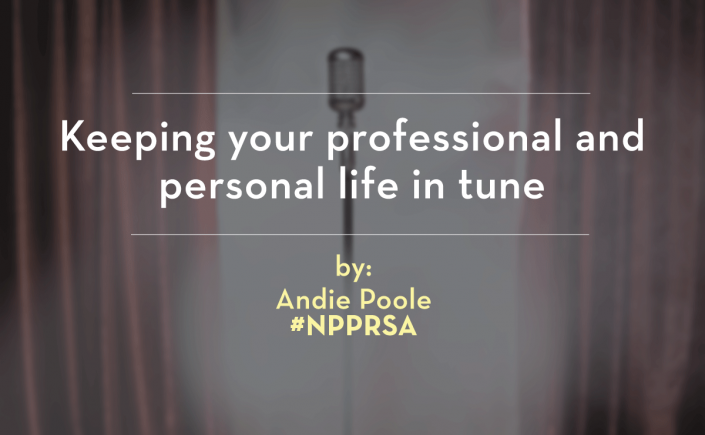
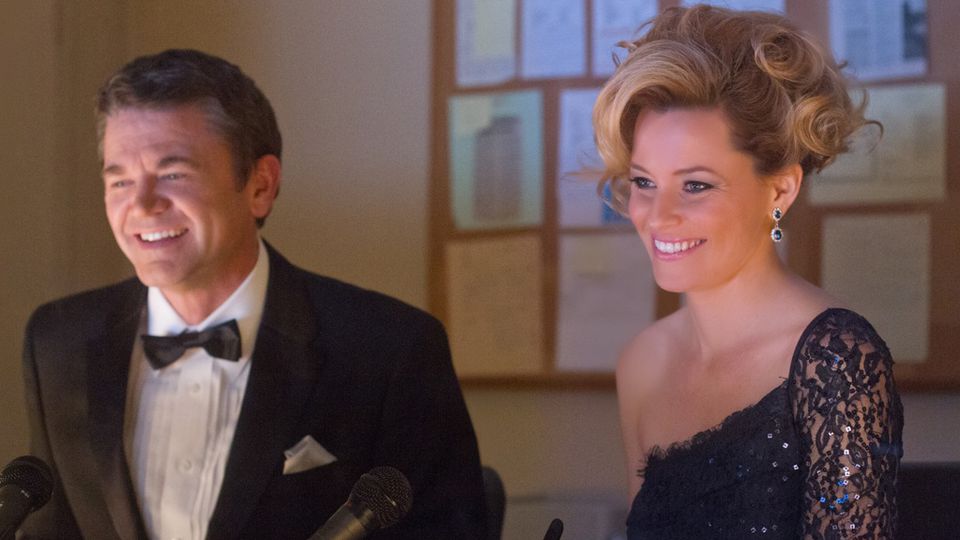

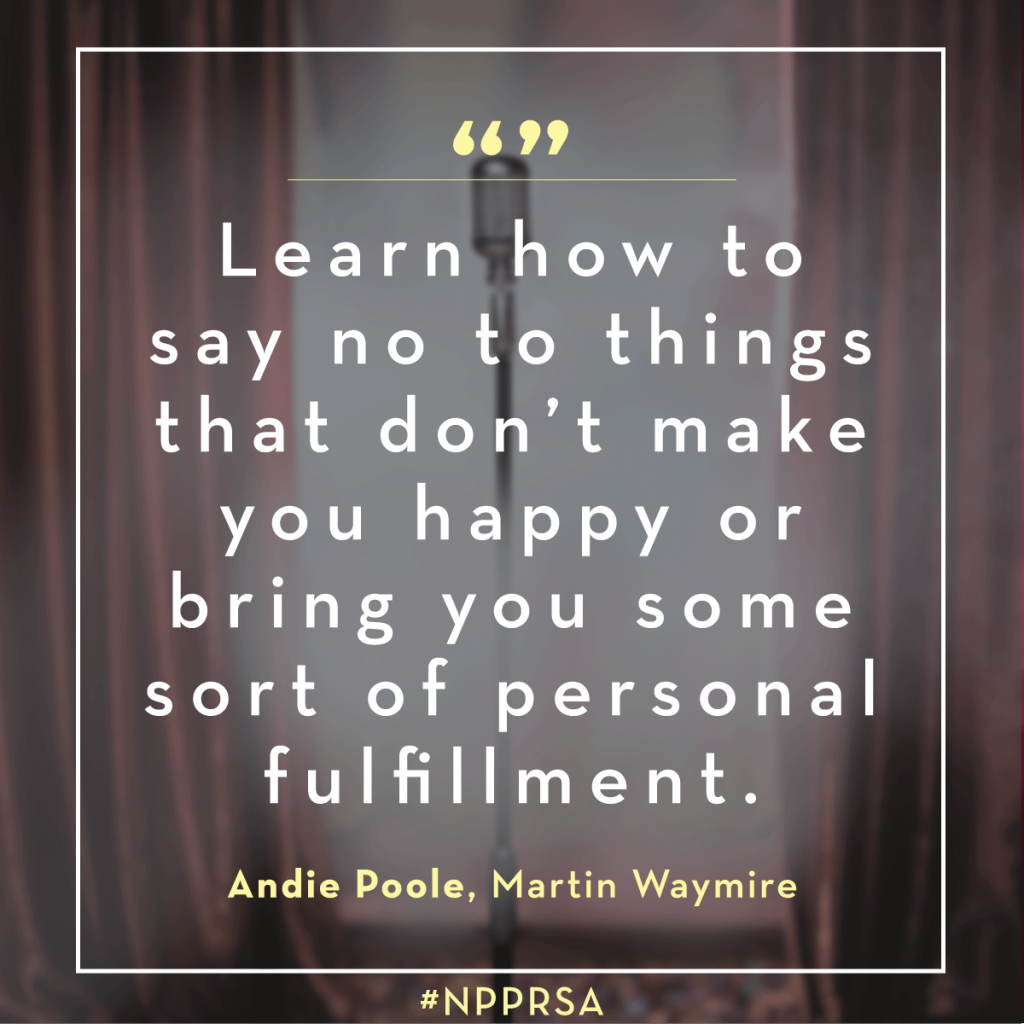

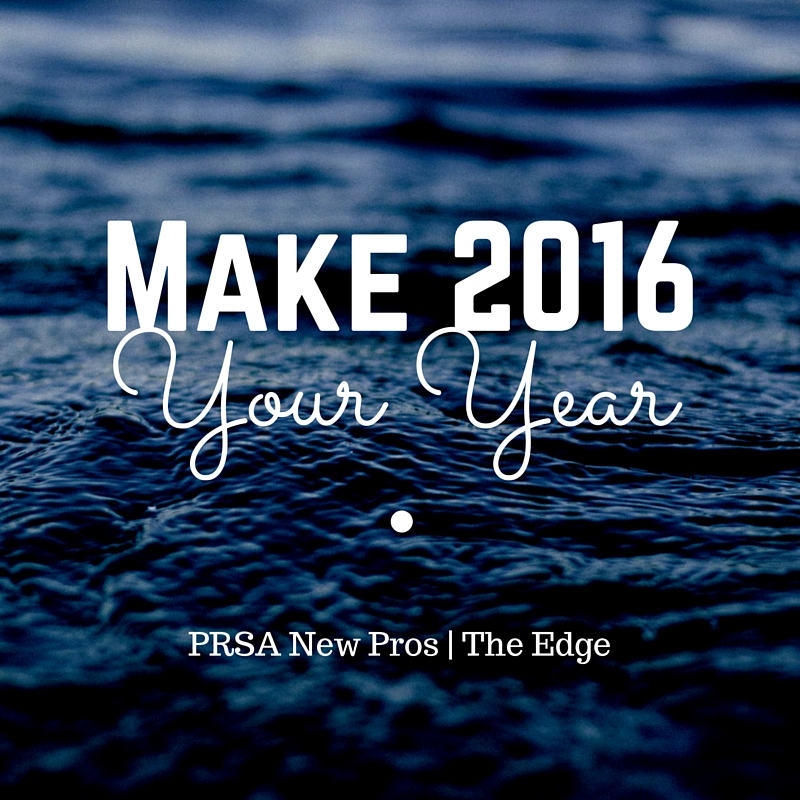

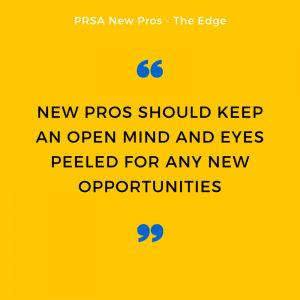 This is absolutely the wrong way to approach finding a fulfilling career. Instead of pursuing opportunities only when we think we desperately need them, new pros should keep an open mind and eyes peeled for any new opportunities, no matter how satisfying their current position may be.
This is absolutely the wrong way to approach finding a fulfilling career. Instead of pursuing opportunities only when we think we desperately need them, new pros should keep an open mind and eyes peeled for any new opportunities, no matter how satisfying their current position may be.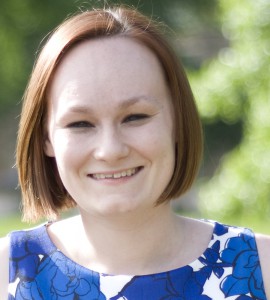 byn Rudish-Laning is a member of PRSA SC and communications coordinator for the South Carolina Council on Competitiveness. Robyn is also a member of the New Professionals executive committee. She is a graduate of Duquesne University and is currently located in Columbia, SC. Find her on
byn Rudish-Laning is a member of PRSA SC and communications coordinator for the South Carolina Council on Competitiveness. Robyn is also a member of the New Professionals executive committee. She is a graduate of Duquesne University and is currently located in Columbia, SC. Find her on 
